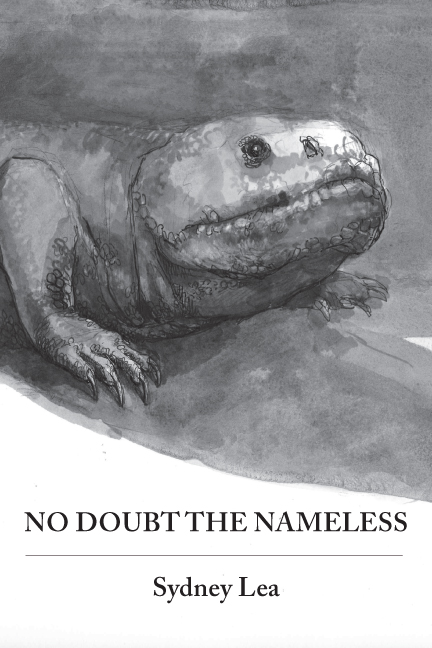
paper • 107 pages • 15.95
ISBN-13: 978-1-935536-73-4
No Doubt the Nameless delves the depths of elegy, yet moves at last into as positive a reading as Sydney Lea’s poems have ever shown of the human situation. Here are familiar rural characters, whose sturdiness and joy figure as strongly into Lea’s narratives, both overt and implied, as do their trials and misfortunes.
from “Milton’s Satan,” from No Doubt the Nameless:
…The nest was empty. Burned. The ceiling
of her room still showed its poster for Some Like It Hot,
shriveling after long years
when Monroe looked down on a herd of plush deer
and other mild creatures
now ragged with age. I imagined imagination
might cool my soul: I wrestled to mind
a gentled meadow dotted with flowers,
the checkered shade of a hardwood stand in fall,
a small brook’s ice-jeweled pools,
and last, an unmarred quilt of snow
on our cellar bulkhead….
“The truth is, no one writes–or has written–like Sydney Lea, except maybe E.A. Robinson. In a long poem, ‘Locals,’ Lea says, ‘My life has been distilled to details, / But on balance has been exquisite.’ And that’s just it: the people, the creatures, the land, but also the language are so exquisitely seen and sounded that every poem is a tribute and a celebration. In this collection full of memories, each is immediate and alive. I am forever a fan of Lea’s poems and of the skill and heart and guts it takes to write poems like these in this age.” — Fleda Brown
“In Sydney Lea’s new book, No Doubt the Nameless, the mystery of the commonplace in its familiar Frostian landscape surrounds the reader. The first poem in the book draws us into the mind of a child, terrified by what seems to be lurking outside his grandmother’s farmhouse on a freezing winter night, as an enormous presence makes itself felt in the dark. But it is not death, as we might expect, ‘out there’–it is birth that is the source of fearful speculation. Again and again these startling, beautifully-made poems upend assumptions about life, death, and everything in-between. ‘I’ll turn the whole bittersweet saga over’, Lea says. And he does, with a sure and steady hand, in profound, masterful, unforgettable style.” — Carol Muske-Dukes